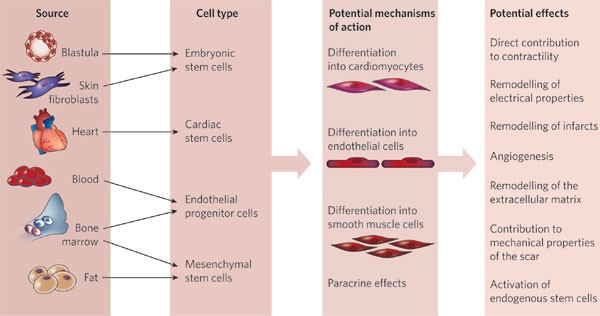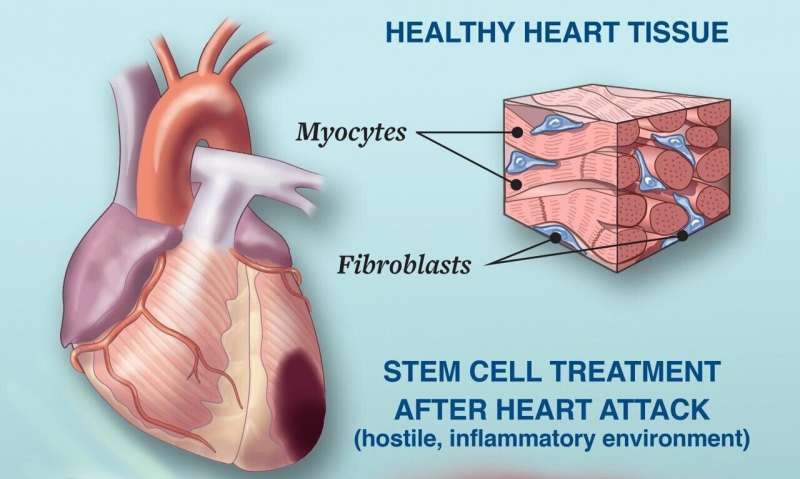Table of Contents
Damage to the heart muscle mass from decreased blood flow. Compromising of the heart muscular tissue.

Our process includes: We start by thoroughly evaluating each client's medical background, present heart feature, and general health. This includes innovative diagnostic imaging and screening to figure out the degree of heart damages.
Several clients report much less exhaustion, boosted breathing, and far better physical endurance. By dealing with the origin triggers, stem cell treatment lowers the risk of future cardiac events.
We incorporate stem cell therapy with complementary therapies for detailed heart treatment. Every treatment plan is personalized to deal with the one-of-a-kind demands of each individual. One of one of the most usual questions we receive is, While no treatment can guarantee total turnaround, have shown significant potential to repair damaged tissues, lower swelling, and boost general heart function.
Leading providers of stem cell therapy focused on Peripheral Artery Disease
Cardiovascular disease is a leading reason of in the USA and worldwide. In the United States alone, virtually 1 million individuals died due to heart disease in 2021 (the most recent year for this information). Globally, that number increases to 17.9 million annually. For many individuals, typical treatments supply hope and help.
Today, researchers focus on two primary types of stem cells: adult stem cells and beginning stem cells. Grown-up stem cells commonly come from bone marrow, fat cells, or also straight from the heart.
Adult stem cells are also easier to gather and have less ethical problems. However there's a drawback. They're not as flexible as embryonic stem cells. They aren't as able to become different kinds of cells, which can limit performance when it pertains to cells repair work. Beginning stem cells can transform into any type of sort of cell, including heart cells.

Another issue is the possibility of creating growths if these cells don't distinguish properly after implantation. The big question is, does stem cell therapy really work for heart fixing?
Scientists are still figuring out the best methods to supply the cells, guarantee they make it through once inside the body, and make certain they integrate effectively with existing heart tissue. One of the greatest obstacles is cell survival and integration after implantation.
Regenerative injections targeting High Blood Pressure with promising results
Also fewer manage to integrate right into the existing heart tissue. For the treatment to be reliable, the new cells require to connect with the old ones and start working as component of the heart muscle.
It's one thing to obtain stem cell therapy to operate in a lab or a small professional trial; it's one more to make it available on a huge range. Producing, storing, and providing stem cells safely and successfully is logistically testing at best. Stem cell therapy is extremely appealing, yet it's not without disadvantages.
This is even more of a concern with embryonic stem cells, but it's present even with adult cells. Stem cell treatment is pricey, partly because of the complexity of harvesting, expanding, and delivering the cells.
In the last several years, there has actually been a significant advancement in stem cell therapy for heart illness. Can stem cell therapy cure heart condition? No, but utilized with your present heart condition regimen, it can enhance your heart health and wellness and quality of life. Worldwide sixty-four million individuals are impacted by cardiac arrest.
Are there supportive options for Arrhythmias with regenerative medicine?
Medical professionals deal with heart failing signs and symptoms in hopes of boosting the individual's top quality of life and avoiding additional difficulties. Drugs like diuretics (to eliminate the fluid in the body), Beta-Blockers (lowering the force of the blood flow and slowing down the heart beat to reduced high blood pressure), and ACE Preventions (reduced high blood pressure by unwinding the blood vessels and arteries) are utilized to treat the signs and symptoms of heart problem.
The inquiry stays, can stem cells cure heart condition? Stem cells can't cure heart illness, but they can revitalize the heart muscular tissue and enhance the ejection fraction (the amount of blood the heart pumps with each beat) on the heart's left side.
Navigation
Latest Posts
Can you manage Atherosclerosis with stem cells?
Is stem cell therapy right for Arrhythmias in today’s clinics?
Next-gen support for Heart Failure now available